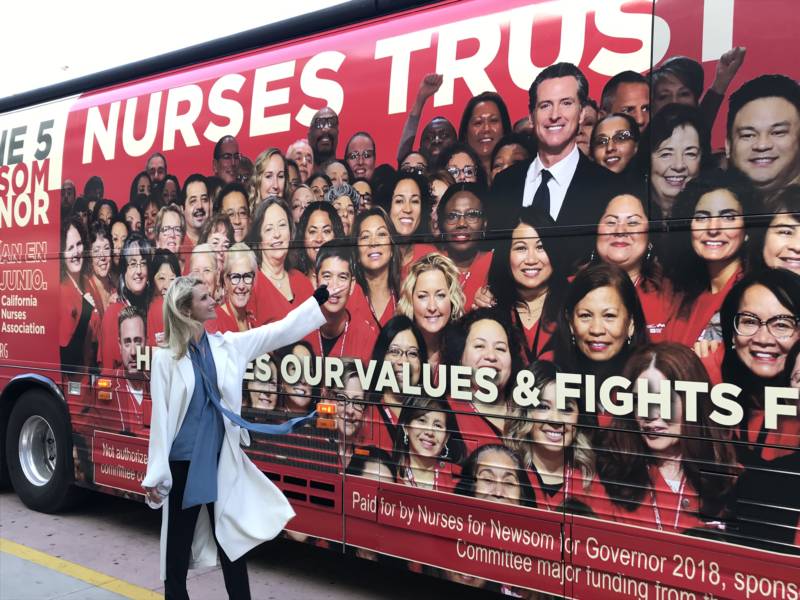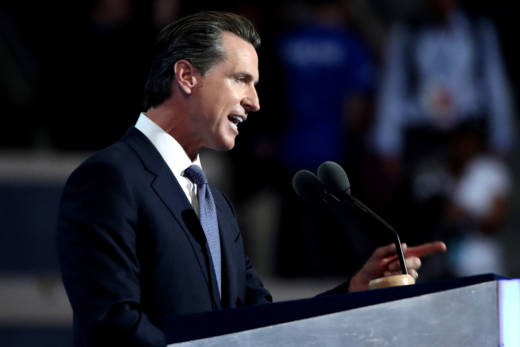As the race for governor heats up, support for a government-run single-payer health care system is becoming a kind of litmus test for Democrats -- and no candidate has embraced the idea more closely than Lt. Gov. Gavin Newsom.
But pressure to support single payer, including SB 562 which passed the state Senate before stalling in the Assembly, has gotten the attention of candidates up and down the ballot, some of whom fear alienating the powerful "take no prisoners" California Nurses Association, single payer's most ardent supporter.
Newsom has long been a favorite of the nurses union. In fact, they endorsed him for governor more than two years ago, in large measure based on his support for Healthy San Francisco (HSF), a program enacted in 2006 when he was mayor.
The idea was first proposed by then-Supervisor Tom Ammiano, a frequent critic of Newsom's. The former mayor acknowledges that he had serious questions and doubts about the idea when it first surfaced, partly because small businesses were required to help pay for it. Among its biggest critics was the Golden Gate Restaurant Association, which sued in federal court to stop it.
Newsom, himself a restaurant owner, eventually came around, and now he uses HSF to tout his credibility on single payer. Enacted before the Affordable Care Act (ACA), or Obamacare, Healthy San Francisco was intended to provide "universal access" to health care for low-income folks who did not otherwise qualify for Medi-Cal.

At a convention of nurses in September, Newsom bragged that the program greatly expanded the city's health care safety net, "regardless of pre-existing conditions, regardless of your ability to pay and regardless of your immigration status -- the only city with universal health care."
